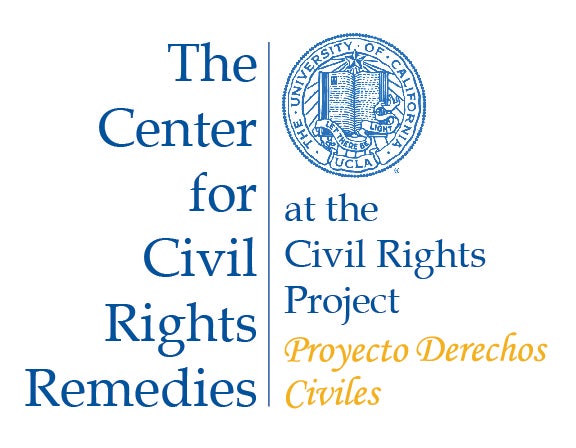Los Angeles–A UCLA research study released today shows that the overuse of suspensions in California schools resulted in well over 700,000 days of lost instruction during the 2016-17 academic year. The impact is greatest in grades 7-8 where the disparities along the lines of race and disability are also the deepest.
The report, The Unequal Impact of Suspension on the Opportunity to Learn in California: What the 2016-17 Rates Tell Us about Progress, estimates instructional days lost for each school district in the state, with the first ever breakdowns by grade spans, and includes the six-year trends in lost instruction for California as a whole. It was written by Daniel J. Losen, Director of UCLA’s Civil Rights Project at the Center for Civil Rights Remedies, and Kacy Martin, a researcher at the Center.
The report highlights how instruction time for California students with disabilities, Black students, Native Americans and Latinos is profoundly impacted by suspensions. “What jumps out the most are the huge losses and gross inequities in grades 7-8, where Black students lost over 71 days of instruction per 100 enrolled. That rate means Black students lost 52 more days than the 19 days per 100 lost by White students,” said Losen. Co-author Martin further points out “When we focus on just 156,00 of lost days attributed to minor misbehaviors, nearly a third of all the lost instruction for the disruption or defiance category resulted from suspensions meted out in just two grades, 7 and 8.”
Researchers praise the overall trend, which shows that suspensions for minor behaviors now constitute just 20% of lost instruction due to discipline, down from 40% six years ago. However, the report highlights the districts where the disparate instruction loss is greatest, finding that losses due to disruption or defiance suspensions can contribute to as much as 80% of the racial gap in some of the highest suspending districts. As Losen points out “Community level advocates have encouraged educators to replace suspension with educationally sound responses to minor misbehaviors in many local districts, but there are still some very harsh districts with shocking inequities.”
The report also examines how students with disabilities in California lose tremendous amounts of instruction, and how there are profound differences by race among those receiving special education. Specifically, in grades k-12, among students with disabilities, Black students lost 79 days and Native Americans lost 50 days per 100 enrolled, respectively. Both are far greater than the 30 days per 100 lost by White students with disabilities.
This study reaches the public at a particularly important time. While the state law prohibiting suspensions for disruption/defiance for K-3 students has been extended permanently, the state legislature has voted to expand that prohibition to cover students in K-8. The Governor will soon decide whether the statewide reform efforts, that ensure changes help students in every district, will stall or continue to grow.
Losen and Martin believe the data support eliminating suspensions for minor behaviors at all grade levels, and see no evidence of chaos during the six years of steady declines in the use of suspensions to respond to minor behaviors. The study also recommends that California annually and publicly report the actual days of lost instruction, that districts use their funding under LCAP to ensure training for teachers and administrators, and encourage the use of climate surveys to ensure that discipline reform efforts serve the overarching goals of improving the conditions of learning for all children.
The full report, The Unequal Impact of Suspension on the Opportunity to Learn in California: What the 2016-17 Rates Tell Us about Progress, and data supplement showing lost school days for each California district are available here, and at www.schooldisciplinedata.org. Researchers estimated that the average suspension lasted for two days in duration. This estimate was based on data reported by Los Angeles Unified and Oakland Unified, as well as California data reported to the U.S. Department of Education from 2015-16.
